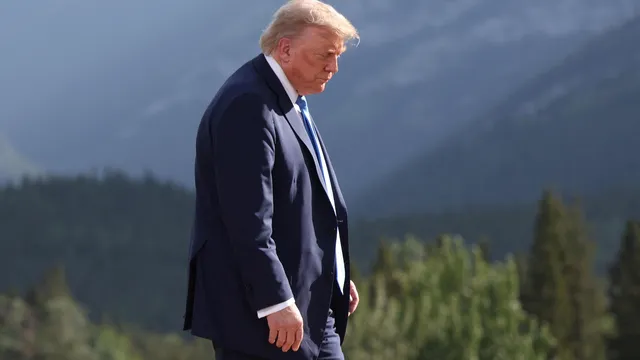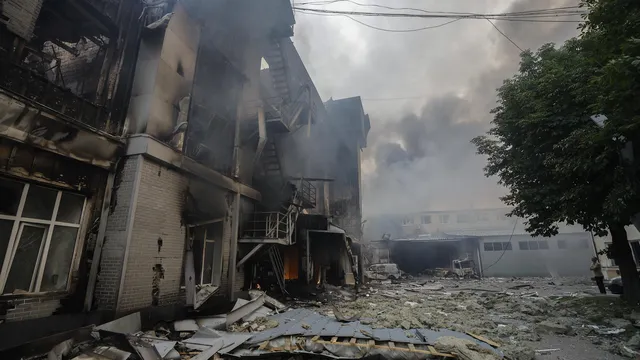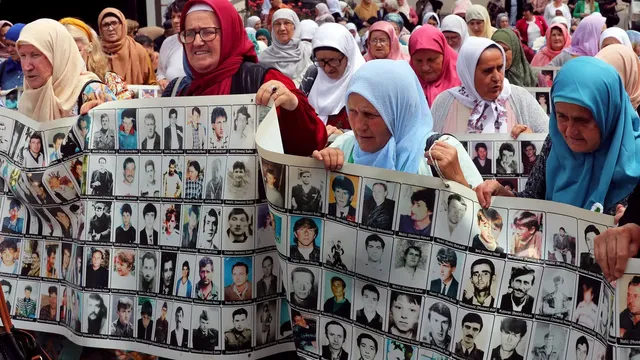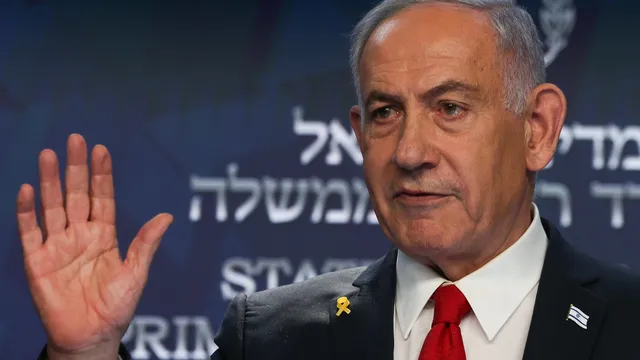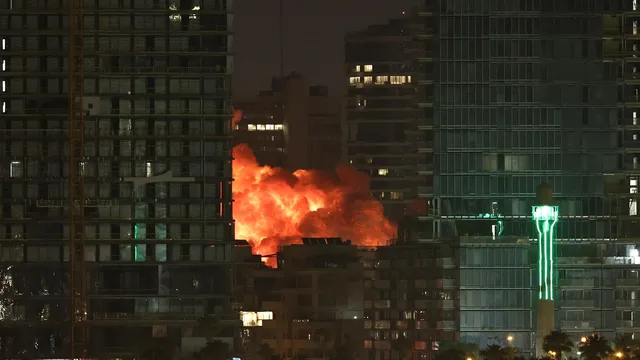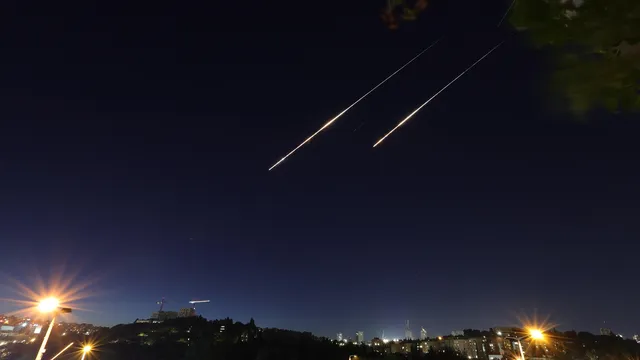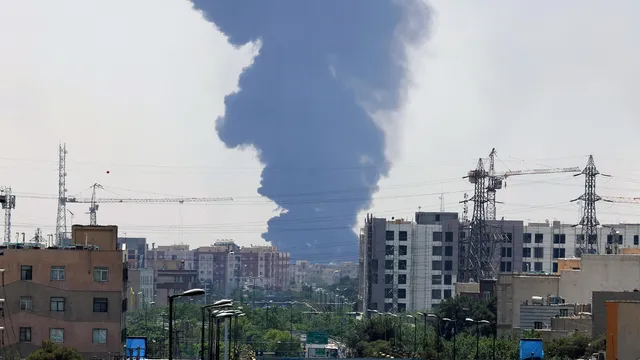US President Donald Trump left the G7 summit, hinting at greater involvement in the conflict between Israel and Iran and warning Tehran residents to evacuate, AFP reported.
Before flying out of Canada in the middle of the G7 meeting, Trump took to social media to support Israel and issue a warning to the Iranian capital, which has a population of nearly 10 million.
"Everyone should leave Tehran immediately!" he wrote on his social media platform Truth Social.
In a group photo with other G7 leaders at the picturesque mountain resort of Canmore, he said: "I have to get back as soon as possible. I would like to stay for tomorrow, but they understand that this is important."
White House press secretary Karoline Leavitt confirmed that Trump would attend the leaders' dinner before returning to the White House.
The US president will miss a day of meetings that were expected to include talks with the leaders of Ukraine and Mexico.
He has repeatedly refused to say whether the US will participate in Israel's military action, although he insists that the country was not involved in the initial strikes.
Before announcing his decision to leave early, Trump told reporters, "As soon as I leave here, we will take action."
The president, who praised Israel's strikes while noting that he prefers diplomacy, commented that Iran would be "foolish" not to agree to renegotiate the agreement.
"It's painful for both sides, but I would say that Iran is not winning this war and they have to negotiate, and they have to negotiate immediately before it's too late," Trump told reporters during his meeting with Canadian Prime Minister Mark Carney.
US forces in the Middle East remain in a defensive posture, a White House spokesman said.
Iran's responsibility
Israel struck important nuclear and military sites and killed senior commanders and nuclear scientists in Iran, which responded with a series of drones and missiles on Israel.
Canada and European leaders had hoped to draft a G7 statement on the crisis, but diplomats said Trump had not committed the US to joining it.
The leaders of the club of industrialized democracies — Britain, Canada, France, Germany, Italy, Japan, and the US — largely backed Israel, but as the violence escalated, so did concerns.
French President Emmanuel Macron, speaking to reporters at the summit, called on Israel to spare civilians in Iran.
Any G7 statement is expected to place responsibility on Iran and not call for an immediate ceasefire.
"We will emphasize the legitimate right of the State of Israel to defend itself and will discuss potential additional measures to achieve a diplomatic solution," German Chancellor Friedrich Merz said.
British Prime Minister Keir Starmer announced that G7 leaders share concerns about Iran's nuclear program, but also: "I think there is a consensus on de-escalation."
Since Trump withdrew from the previous nuclear agreement in 2018, Iran has accelerated its uranium enrichment but has not yet reached the levels needed to build an atomic bomb.
Israel is widely believed to possess nuclear weapons but does not publicly acknowledge them.
Tariff negotiations
The summit in a forest lodge beneath snow-capped mountains comes after months of turbulent events on the world stage since Trump's return.
In his quest to dismantle the decades-old US-led global economic order, Trump has promised to impose drastic tariffs on both friends and foes, although he has postponed their introduction until July 9.
However, Trump expressed optimism about reaching a solution with Canada and signed documents with Trudeau confirming the agreement with the UK.
Trump had earlier mocked host Canada, saying that its huge but sparsely populated neighbor should become the 51st state of the US.
But Trump seems to have more respect for Canada since Carney, a former central banker with a level-headed demeanor, took over from the more eccentric Justin Trudeau in March.
Trump took office with the intention of conducting diplomatic negotiations with both Iran and Ukraine, which Russia invaded in 2022.
Since then, he has expressed disappointment that Russian President Vladimir Putin has not accepted the US proposal for a truce.
Trump noted that Putin was "very offended" by Russia's exclusion from the G8 in 2014 and that if Russia were still a member, "there would be no war now." |BGNES

 Breaking news
Breaking news
 Europe
Europe
 Bulgaria
Bulgaria
